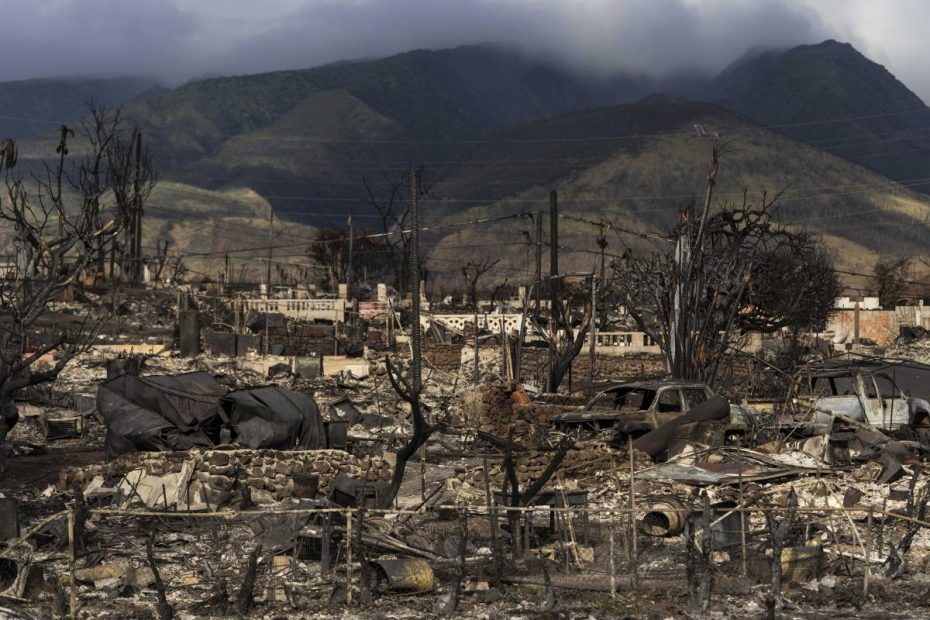HONOLULU (AP) — A Maui judge's ruling Tuesday removes a major hurdle to finalizing a $4 billion wildfire settlement: Insurance companies that have paid out more than $2 billion in claims can seek reimbursement only for the amount of the settlement that defendants who blame fire victims for the deadly tragedy have agreed to pay.
Lawyers representing plaintiffs in hundreds of lawsuits over the deaths and destruction caused by the fires asked the judge to bar insurers from taking independent legal action to recover money paid to policyholders. Preventing insurers from going after defendants is a key condition of the settlement.
The settlement was reached earlier this month, days before the first anniversary of the fires, amid fears that Hawaiian Electric, the utility accused by some of sparking the blazes, could be on the brink of bankruptcy. Other defendants include Maui County and large landowners.
The federal Bureau of Alcohol, Tobacco, Firearms and Explosives is investigating the August 8, 2023, fires that killed 102 people, destroyed historic downtown Lahaina, burned thousands of homes and left 12,000 homeless.
Plaintiffs' attorneys feared that allowing insurers to seek compensation separately would be a sticking point, leaving insufficient funds to pay fire victims and leading to lengthy litigation.
A group of more than 160 property insurers that have so far paid out more than $2.34 billion to people and businesses affected by the fires continue to oppose the settlement.
Insurance company attorneys argued in their court filings that the rush to settle deprives insurers of their right to a fair trial.
The insurance industry has been unfairly demonized and those responsible for the fires are not being held accountable, Vincent Raboteau, a lawyer representing the insurers, told the judge.
“And we’re not claiming to be first in line for anything,” he said. “It’s always been our position that individual plaintiffs should get the lion’s share.”
After the hearing, Raboteau declined to comment on Cahill's ruling and would not say whether the company plans to have Cahill's ruling reviewed by the Hawaii Supreme Court.
Jake Lowenthal, an attorney selected as one of four liaisons to coordinate the plaintiffs' lawsuits, said they are encouraged by Cahill's ruling.
“This is a critical part of reaching a definitive resolution to everyone's claims and resolving the insurance companies' potential rights to compensation,” he said.

